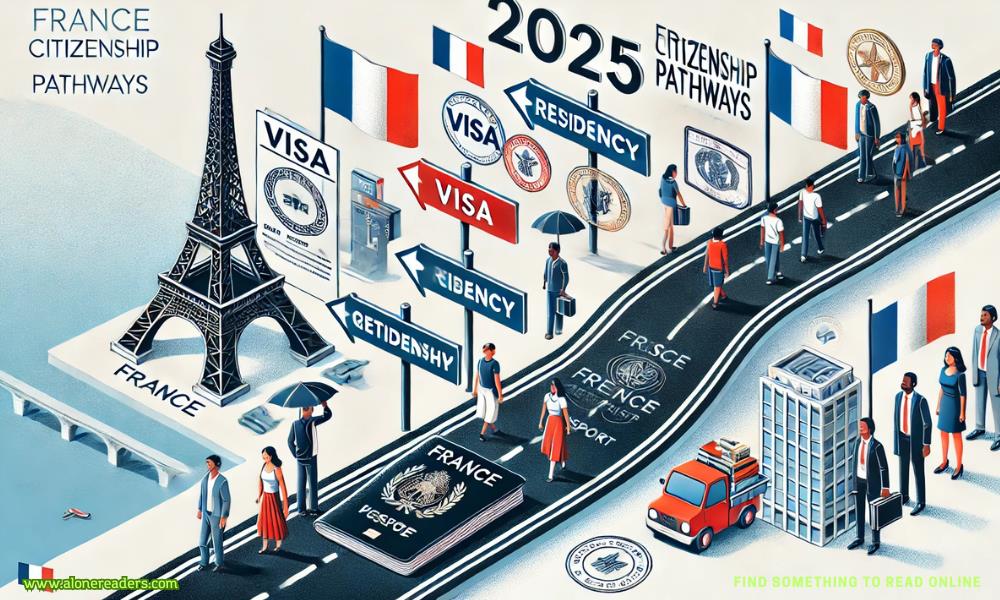
France remains one of the most sought-after destinations for international migrants, students, skilled workers, and families. Its strategic location in Europe, strong social system, rich culture, and high quality of life make it especially appealing. But moving to France and eventually becoming a French citizen is a complex process that involves a carefully structured immigration and nationality framework.
This article provides a comprehensive and detailed guide to all the main legal pathways to French citizenship in 2025—starting from visa categories, transitioning to residency, and culminating in naturalization or automatic acquisition of nationality.
Before exploring the specific pathways, it's essential to understand how French nationality is acquired. In 2025, the French Civil Code recognizes four primary modes of acquiring French citizenship:
Each pathway has its own prerequisites, timelines, and legal implications.
For most non-EU nationals, the journey to French citizenship begins with acquiring a long-stay visa, which allows residence for more than 90 days and can serve as the basis for residency and eventually nationality.
Popular long-stay visa categories include:
Once inside France, a long-stay visa holder must convert the visa into a residence permit (titre de séjour) within the first 2–3 months.
After initial visa-based residence, the next step is obtaining a Carte de séjour pluriannuelle (multi-year residence permit), followed by the Carte de résident (permanent residence card).
Key points for this phase:
After living in France legally and continuously for the required number of years, foreign nationals can apply for naturalization. In 2025, the core naturalization requirements remain consistent but are strictly enforced.
Eligibility Criteria for Naturalization:
The application process includes gathering a complete dossier, attending a préfecture appointment, and waiting through a processing period that can last 12 to 18 months.
Another significant pathway is through marriage to a French citizen.
Eligibility Requirements in 2025:
Notably, if the couple lives abroad, the required duration of marriage extends to 5 years unless the French partner has been registered with the French consulate for at least 3 years.
France follows a combination of jus soli (right of soil) and jus sanguinis (right of blood) principles.
Citizenship by descent (jus sanguinis):
A child born abroad to at least one French parent automatically acquires French citizenship.
Citizenship by birth in France (jus soli):
Children born in France to foreign parents can acquire French citizenship:
An underused but legitimate path is naturalization by rendering exceptional service to France, particularly through military service.
Refugees granted asylum in France can apply for naturalization after 5 years of recognized status.
Stateless Individuals: Those recognized as stateless by OFPRA (French Office for the Protection of Refugees and Stateless Persons) may also apply for French nationality under similar conditions.
Increased Scrutiny:
Post-2023, the French government has enhanced vetting of naturalization applications, especially in relation to security, secularism, and social values.
Digitalization of Processes:
Prefectures in major cities (e.g., Paris, Lyon, Marseille) have implemented digital portals for appointment bookings, document uploads, and application tracking.
Delays and Regional Variations:
Processing times and the ease of securing appointments vary significantly across regions. Early planning is crucial.
Once your application is approved, your name is published in the Journal Officiel de la République Française, marking the official grant of citizenship. A citizenship ceremony may follow, especially for group naturalizations.
You can then apply for a French passport and national ID card, and gain full rights including voting, employment in the public sector, and EU mobility.
Conclusion
Becoming a French citizen in 2025 is a multi-stage process that demands legal residence, cultural integration, language fluency, and administrative diligence. Whether you start with a student visa, a work permit, or marriage to a French citizen, each pathway is clearly structured but requires time, patience, and compliance with stringent criteria. France offers a transparent, though highly regulated, process—rewarding those who invest genuinely in the values and life of the Republic. For many, the blue-white-red passport symbolizes not just mobility but deep social belonging.
If you're planning your journey toward French citizenship, now is the time to plan early, prepare thoroughly, and integrate meaningfully.